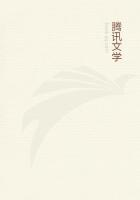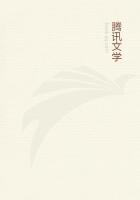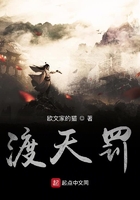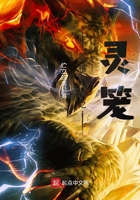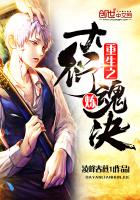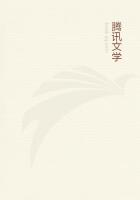Aunt Tanya was asked to sing. We listened with beating hearts, and waited to hear what Turgenieff, the famous connoisseur, would say about her singing. Of course he praised it, sincerely, I think. After the singing a quadrille was got up. All of a sudden, in the middle of the quadrille, Ivan Sergeyevitch, who was sitting at one side looking on, got up and took one of the ladies by the hand, and, putting his thumbs into the armholes of his waistcoat, danced a cancan according to the latest rules of Parisian art. Everyone roared with laughter, Turgenieff more than anybody.
After tea the "grown-ups" started some conversation, and a warm dispute arose among them. It was Prince Uru;sof who disputed most warmly, and "went for" Turgenieff.
Of Turgenieff's third visit I remember the woodcock shooting. This was on the second or third of May, 1880.
We all went out together beyond the Voronka, my father, my mother and all the children. My father gave Turgenieff the best place and posted himself one hundred and fifty paces away at the other end of the same glade.
My mother stood by Turgenieff, and we children lighted a bonfire not far off.
My father fired several shots and brought down two birds;
Ivan Sergeyevitch had no luck, and was envying my father's good fortune all the time. At last, when it was beginning to get dark, a woodcock flew over Turgenieff, and he shot it.
"Killed it?" called out my father.
"Fell like a stone; send your dog to pick him up," answered Ivan Sergeyevitch.
My father sent us with the dog, Turgenieff showed us where to look for the bird; but search as we might, and the dog, too, there was no woodcock to be found. At last Turgenieff came to help, and my father came; there was no woodcock there.
"Perhaps you only winged it; it may have got away along the ground," said my father, puzzled. "It is impossible that the dog shouldn't find it; he couldn't miss a bird that was killed."
"I tell you I saw it with my own eyes, Lyoff Nikolaievich; it fell like a stone. I didn't wound it; I killed it outright. I can tell the difference."
"Then why can't the dog find it? It's impossible; there's something wrong."
"I don't know anything about that," insisted Turgenieff. "You may take it from me I'm not lying; it fell like a stone where I tell you."
There was no finding the woodcock, and the incident left an unpleasant flavor, as if one or the other of them was in the wrong.
Either Turgenieff was bragging when he said that he shot it dead, or my father, in maintaining that the dog could not fail to find a bird that had been killed.
And this must needs happen just when they were both so anxious to avoid every sort of misunderstanding! That was the very reason why they had carefully fought shy of all serious conversation, and spent all their time merely amusing themselves.
When my father said good night to us that night, he whispered to us that we were to get up early and go back to the place to have a good hunt for the bird.
And what was the result? The woodcock, in falling, had caught in the fork of a branch, right at the top of an aspen-tree, and it was all we could do to knock it out from there.
When we brought it home in triumph, it was something of an "occasion," and my father and Turgenieff were far more delighted than we were. It turned out that they were both in the right, and everything ended to their mutual satisfaction.
Ivan Sergeyevitch slept down-stairs in my father's study. When the party broke up for the night, I used to see him to his room, and while he was undressing I sat on his bed and talked sport with him.
He asked me if I could shoot. I said yes, but that I didn't care to go out shooting because I had nothing but a rotten old one-barreled gun.
"I'll give you a gun," he said. "I've got two in Paris, and I have no earthly need for both. It's not an expensive gun, but it's a good one. Next time I come to Russia I'll bring it with me."
I was quite taken aback and thanked him heartily. I was tremendously delighted at the idea that I was to have a real central-fire gun.
Unfortunately, Turgenieff never came to Russia again.
I tried afterward to buy the gun he had spoken of from his legatees not in the quality of a central-fire gun, but as Turgenieff's gun; but I did not succeed.
That is all that I can remember about this delightful, *****ly cordial man, with the childlike eyes and the childlike laugh, and in the picture my mind preserves of him the memory of his grandeur melts into the charm of his good nature and simplicity.
In 1883 my father received from Ivan Sergeyevitch his last farewell letter, written in pencil on his death-bed, and I remember with what emotion he read it.
And when the news of his death came, my father would talk of nothing else for several days, and inquired everywhere for details of his illness and last days.
Apropos of this letter of Turgenieff's, I should like to say that my father was sincerely annoyed, when he heard applied to himself the epithet "great writer of the land of Russia," which was taken from this letter.
He always hated cliches, and he regarded this one as quite absurd.
"Why not 'writer of the land'? I never heard before that a man could be the writer of a land. People get attached to some nonsensical expression, and go on repeating it in season and out of season."
I have given extracts above from Turgenieff's letters, which show the invariable consistency with which he lauded my father's literary talents. Unfortunately, I cannot say the same of my father's attitude toward Turgenieff.
In this, too, the want of dispassionateness in his nature revealed itself. Personal relations prevented him from being objective.
In 1867, apropos of Turgenieff's "Smoke," which had just appeared, he wrote to Fet:
There is hardly any love of anything in "Smoke" and hardly any poetry. The only thing it shows love for is light and playful *****ery, and for that reason the poetry of the story is repulsive.
. . . I am timid in expressing this opinion, because I cannot form a sober judgment about an author whose personality I dislike.

